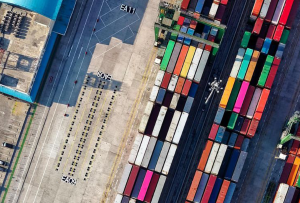Obligation to retain (digital) invoices
What about archiving and the obligation to retain digital invoices, but also scans of paper invoices?

The rules on the tax retention obligation of digital documents are described in the document ‘Your computerised administration and the tax retention obligation’ of the Tax and Customs Administration.
Custody obligation for the tax authorities
A condition that the Tax and Customs Administration has for the storage of invoices is that they can be retrieved within a ‘reasonable period of time’. This means that if the tax authorities want to carry out a check, they do not have to wait months for the invoices to be checked.
Outside the deadline for requesting the documents, the Tax and Customs Administration states that the documents must be stored in the form in which they are received. However, there is another option. The original documents may be ‘converted’, which means that scans of paper invoices are also regarded as ‘form in which they come in’.
Conversion from physical to digital
In order to carry out a successful conversion from physical to digital, the Tax and Customs Administration has drawn up six conditions:
- All data must be transferred.
- The content of all data must be correct.
- The data carrier must be available for the entire retention period.
- The converted data can be (re)produced and readable within a reasonable period of time.
- The converted data can be executed within a reasonable time.
- The results are kept from internal control. Think of the alignment with original data and the possible difference analysis.
These conditions speak for themselves but are still important to have appointed.
Storage period of digital invoices
When the conditions of the conversion are met, the Tax and Customs Administration indicates that the retention period for invoices is in principle seven years (10 years for invoices relating to real estate).
A little piece of advice from us: are you planning to throw away paper invoices? It is allowed, but inform the tax inspector in advance. Then no problems can arise afterwards.
Weitere BlogsMore BlogsMeer blogs



